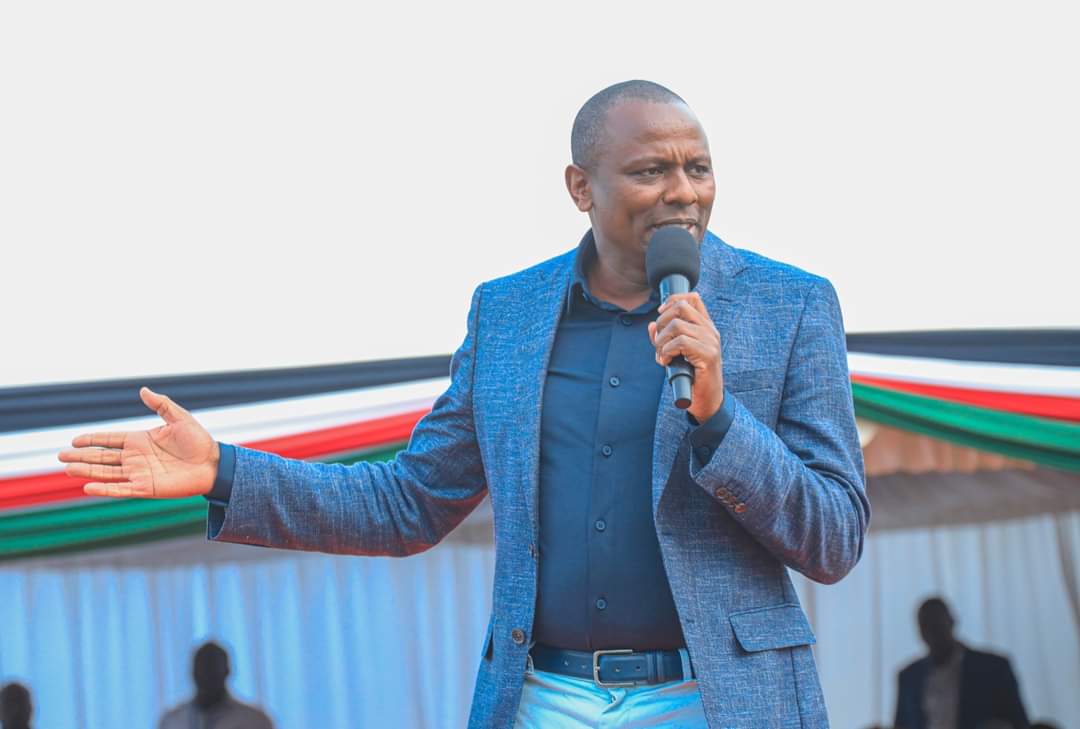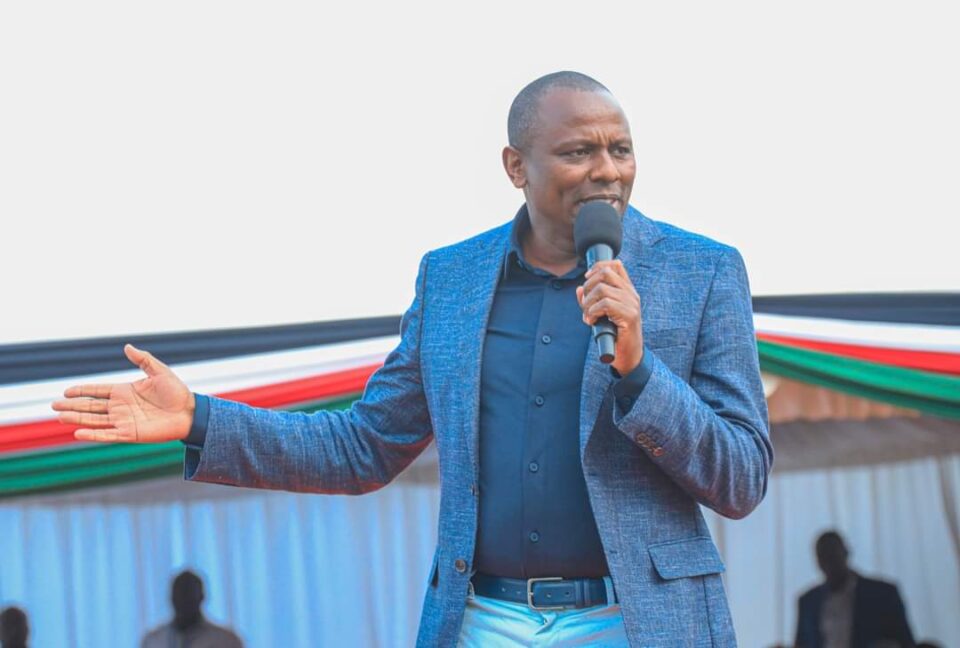National Assembly Majority Leader Kimani Ichung’wah made significant accusations against Deputy President Rigathi Gachagua, alleging that Gachagua was attempting to blackmail leaders from the Mt. Kenya region. This controversy highlights the ongoing power struggles and political dynamics within the Mt. Kenya political landscape.
Kimani Ichung’wah, a prominent figure in the National Assembly and a representative of Kikuyu Constituency, accused Deputy President Rigathi Gachagua of using coercive tactics to consolidate his influence over the Mt. Kenya leaders. Ichung’wah’s critique was directed at what he perceived as Gachagua’s attempt to enforce a monolithic unity in the region, driven by self-serving motives rather than the collective interests of the people.
Ichung’wah expressed his dissatisfaction with Gachagua’s approach, arguing that it was detrimental to the democratic principles of leadership and representation. He suggested that Gachagua’s push for unity was less about regional solidarity and more about cementing his control over the political narrative in Mt. Kenya. This, according to Ichung’wah, involved marginalizing dissenting voices and undermining the autonomy of other leaders from the region.
Deputy President Gachagua has been vocal about the need for unity among Mt. Kenya leaders. His calls for a unified front are ostensibly aimed at ensuring that the region maintains a strong and cohesive political influence on the national stage. In a country where regional politics play a critical role, such unity could theoretically strengthen the region’s bargaining power and ensure that its interests are adequately represented in the national government.
However, Ichung’wah contends that Gachagua’s version of unity is exclusionary and authoritarian. He argues that genuine unity should be based on mutual respect and the inclusion of diverse perspectives, rather than the imposition of a single viewpoint. The majority leader believes that Gachagua’s tactics are counterproductive, fostering division rather than true cohesion among the Mt. Kenya leadership.
This conflict between Ichung’wah and Gachagua is emblematic of broader tensions within the Mt. Kenya political scene. The region, which has historically been a pivotal player in Kenyan politics, is currently experiencing a period of realignment and internal competition. Various leaders are jostling for prominence and influence as the country approaches the next electoral cycle.
Ichung’wah’s outspoken opposition to Gachagua reflects a broader sentiment among some Mt. Kenya leaders who feel that their voices are being sidelined. These leaders advocate for a more inclusive approach to regional politics, one that respects the diversity of opinions and promotes collaborative decision-making.
In his statements, Ichung’wah made it clear that he would continue to oppose Gachagua’s tactics unless the Deputy President changes his approach. He called for Gachagua to show greater respect for the autonomy and contributions of other leaders from Mt. Kenya. Ichung’wah emphasized that leadership should be about serving the people and ensuring that their interests are prioritized over personal ambitions.
Ichung’wah’s defiance is significant because it underscores the resistance to any form of political hegemony within the region. His stance resonates with those who believe in a more democratic and participatory form of governance, both at the regional and national levels.
The accusations and the ensuing political fallout have several potential implications. If Gachagua continues to push for unity in the manner criticized by Ichung’wah, it could lead to deeper divisions within the Mt. Kenya leadership. On the other hand, if Gachagua heeds the call for a more inclusive and respectful approach, it could pave the way for a more cohesive and effective regional bloc.
Ultimately, the situation highlights the complex nature of political alliances and the importance of balancing individual ambitions with collective goals. The Mt. Kenya region, like other parts of Kenya, will need to navigate these internal dynamics carefully to ensure that it remains a formidable and unified force in the national political arena.
Kimani Ichung’wah’s accusations against Deputy President Rigathi Gachagua bring to light the underlying tensions and challenges within Mt. Kenya politics. The debate over unity and leadership style will likely continue to shape the region’s political landscape in the coming months and years.


